With grain and forage yields up to 40 percent greater than its conventional cousin, hybrid rye provides growers with abundant marketing, feeding and soil-health opportunities says Walker Sik, Agronomist, and Seed Production Specialist with Millborn Seeds, a South Dakota-based seed company.
“Hybrid vigor brings many benefits, including more seeds per head and more heads per plant, which results in higher grain yields and increased tons of forage. The PollenPlus® system also increases ergot tolerance,” Sik explains, of the hybrid rye developed by German seed company, KWS. “Whether you’re a dairy or cattle producer seeking increased forage biomass, or a farmer seeking profit opportunities within the grain feeding, milling and brewing markets, hybrid rye is a low-input, high return winter annual to consider.”
Millborn Seeds introduced hybrid rye to its lineup because of proven field performance in neighboring states, like Minnesota, Wisconsin and Iowa.
“New genetics bring new possibilities and new performance,” says Claus Nymand, Hybrid Rye KWS Product Manager for North America.
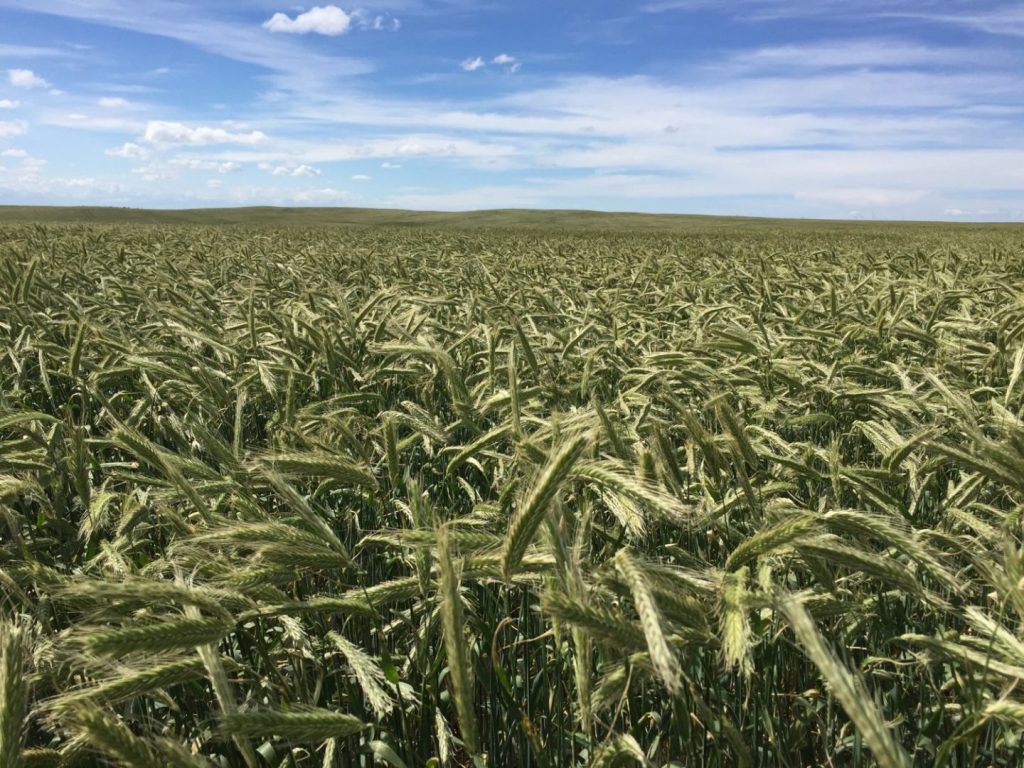
Compared to open-pollinated rye, hybrid rye produces a uniform and consistent stand. 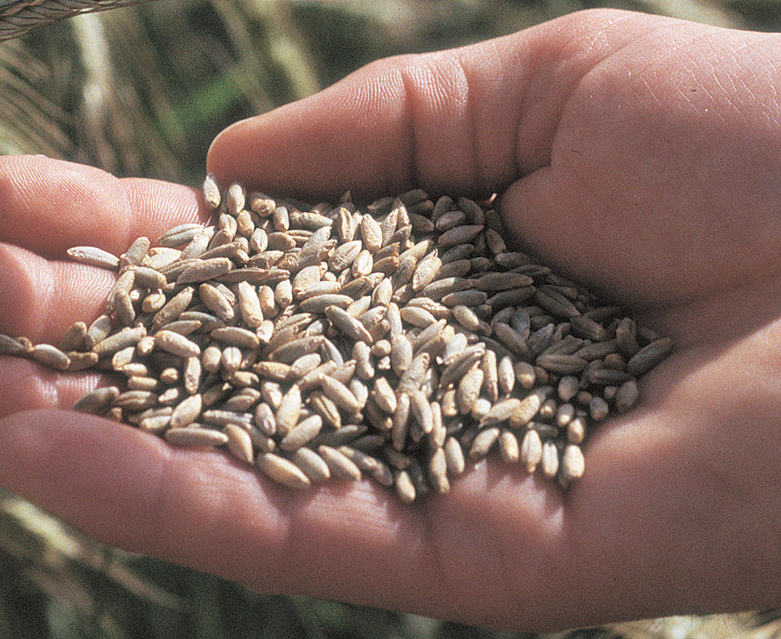
Hybrid rye also produces a nice bulb grain. As all plants have the same genetic makeup, the quality is the same in all grain.
Stop erosion & utilize excess moisture
As a winter annual, hybrid rye can easily fit into a corn or soybean rotation, increasing profit opportunities and providing many soil health benefits. “Hybrid rye has a robust root system. Once established in the fall, it reduces soil erosion and runoff,” Nymand explains. “If your fields are in a region with excess snow or spring moisture, hybrid rye absorbs 60 percent more moisture than black soil. This makes it much easier to plant the next crop in the rotation, such as soybeans after an early cutting of forage rye.”
A low-input crop, hybrid rye’s robust root system efficiently utilizes soil nutrients, requiring 20 percent less nitrogen to produce the same grain yield as winter wheat. The hybrid varieties are more drought-tolerant and have strong disease resistance.
Compared to open-pollinated rye, risk of ergot is reduced in hybrid rye due to PollenPlus technology which enhances pollen production and results in a shorter pollinating window. “This is every bit as winter hardy as conventional rye. The hybrid vigor results in greater stress tolerance and greater yield potential,” Sik says. “I encourage farmers to give hybrid rye a try this season.”
Uniform grain & high quality, high tonnage forage
Depending on grower’s goals, Millborn Seeds offers three, high-yielding varieties of hybrid rye. “In addition to its yield advantages, each hybrid variety consistently performs to its intended purpose. You can count on dependable forage or high yielding and uniform grain set – which is an important factor to consider when marketing to the milling or brewing industries,” Sik explains.
To learn more, contact Sik in Brookings at 605-697-6306 or walkers@millbornseeds.com.
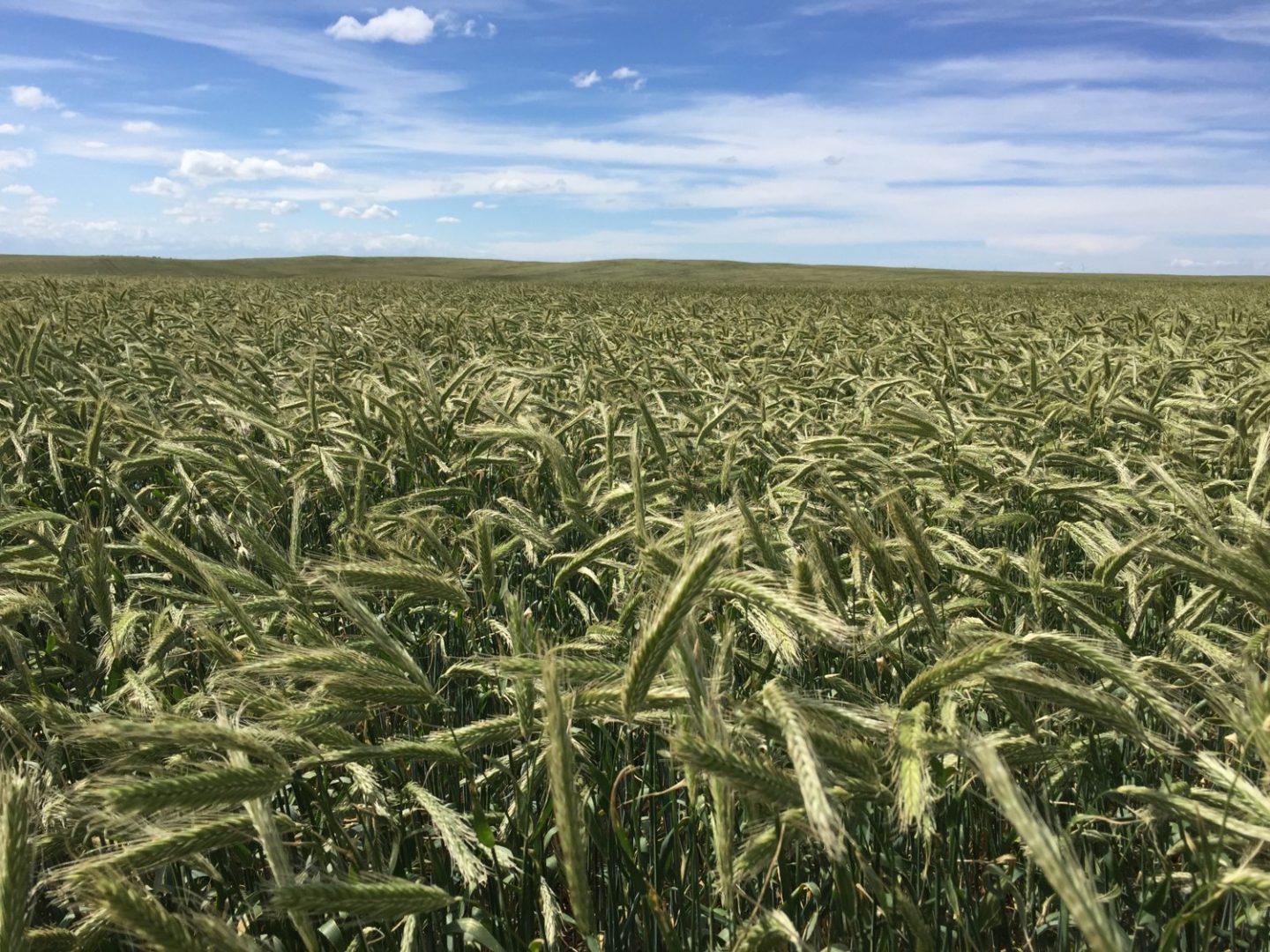
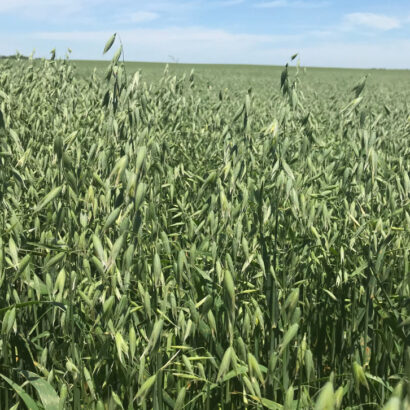
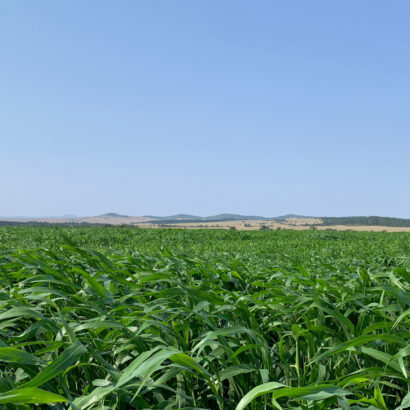
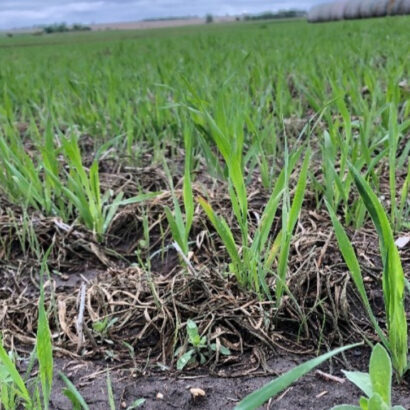
Hi, Sik.
I live in Chihuahua, México.
250 miles south El paso, Tx.
I can see your team has done a great job finding these new improved rye hybrids.
We grow horses and see your promising hybrid rye as a Good choice for our pastures.
We both graze and bale mixes containing oats, rye (Elbon), triticale (beardless) wheat also beardless and Ryegrass.
Can you help me to find the best option to replace Elbon rye for one of your varieties?
Is there any beardless variety?
I thank you in advance for your help!
Sincerely
Jose Morales.
Would be interested in trying some hybred rye